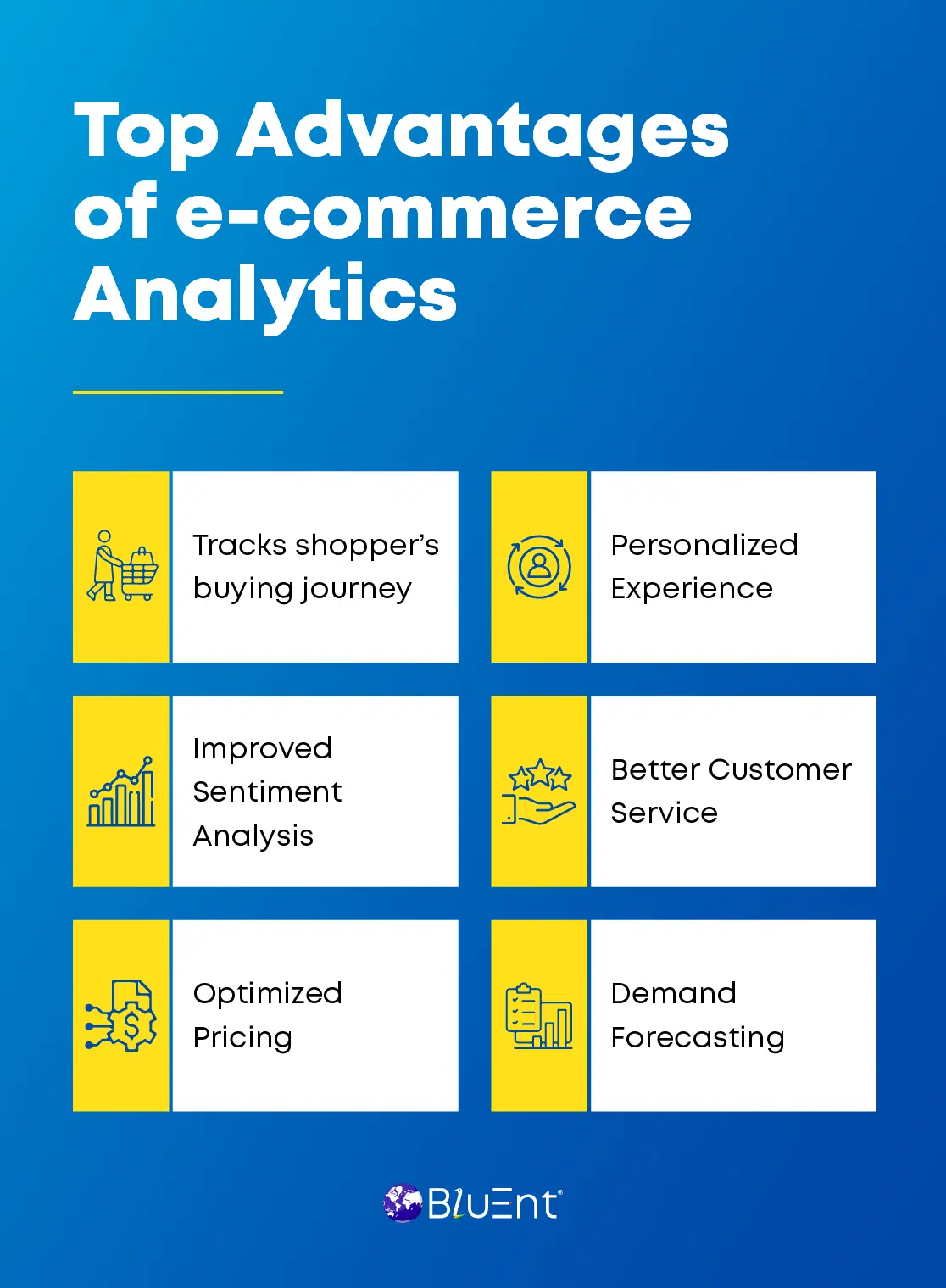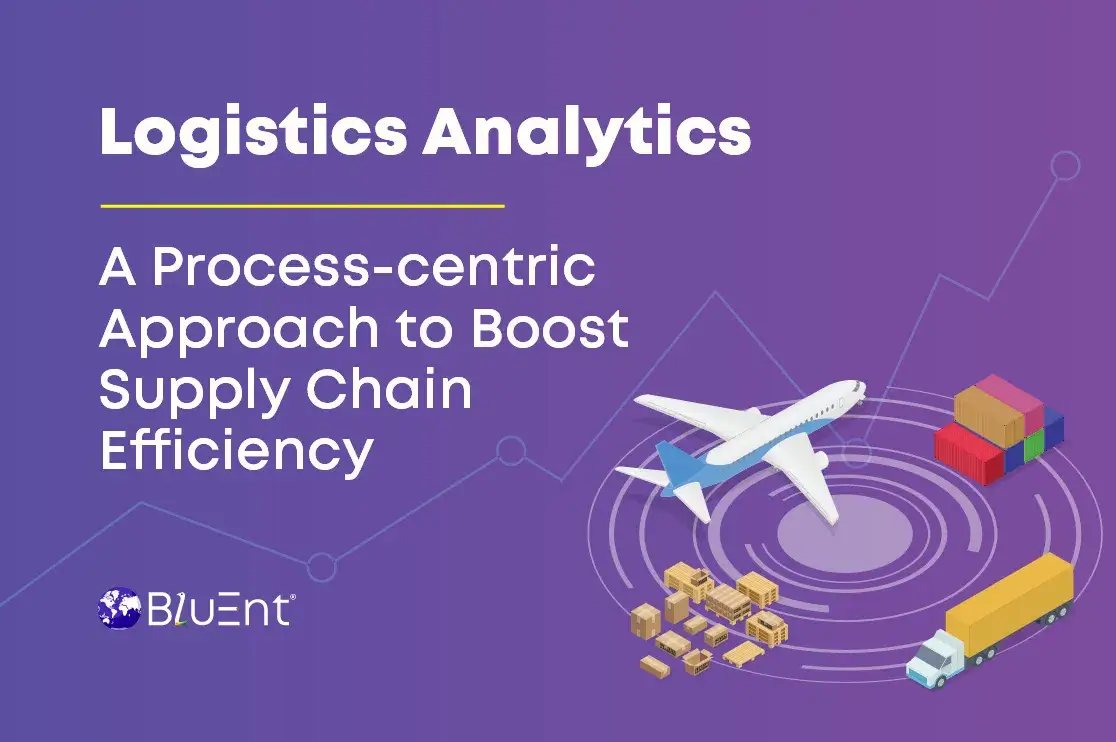How can a business grow if it doesn't know its audience? Brick-and-mortar stores have the advantage of observing foot traffic and regularly talking to customers about their products, quality, and prices. This, however, is not the case with online businesses. So, how do they improve their services? Through e-Commerce analytics.
Take it or leave it, but the age of big data analytics has arrived. Whether you are shopping at the mall, going through a job portal, or using social media to interact with your friends and family, you are bound to leave behind a trail of information. Your online shopping wish list, recent purchases, and mode of payment say a lot about you. e-Commerce analytics is a way to tap that information and create useful insights out of it.
e-Commerce analytics comes in different packages, but they all have one purpose in common: to give businesses an understanding of their customer behavior.
In this blog, we take you through various aspects of e-Commerce analytics and discuss how it aids e-commerce businesses in accessing clean strategic insights for real-world success.
Table of Contents:
What Exactly Does e-Commerce Analytics Mean?
e-Commerce analytics is the process of accumulating buyer data. This is collected from several sources, including website traffic, text and audio, social media, and consumer feedback. This may be structured or unstructured; however, it is engineered to construct meaningful data.
Using these insights, businesses can rework their pricing strategy to match seasonal fluctuations. It may be of value to online stores that are struggling with high churn rates. Of course, dashboards can show how a business is performing, identify areas of improvement, and optimize its sales and marketing efforts. But the best part is that having analytics on your side gives you the freedom to personalize!
A number of tools and techniques are available for e-commerce website analytics. These include web analytics platforms, customer platforms, and business intelligence software.
Conversion rates, customer lifetime value, and customer acquisition costs are only a few of the metrics that e-Commerce analytics track and measure. Take a look at the financial and sales dashboard portfolio created by BluEnt for some of the key gaming companies.
e-Commerce data analytics is particularly important to identify the causes and manage cart abandonment rates. About three-fourths of shoppers abandon their basket at the last moment. Using data insights, one can understand why such a thing happened and what could be done to prevent it.

Why Should You Pay Attention to e-Commerce Analytics?
Looking at the shopping patterns, you can better gauge your e-commerce business website strategy. Since e-Commerce analytics informs decisions about customer behavior, preferences, and shopping trends, teams are better prepared to plan their efforts.
Analytics helps you immensely in bringing down costs. Because the metrics give you an idea of what's profitable and what's not, you allocate your budget accordingly, saving you those extra dollars.
Customers' needs and wants are encoded in their activities. Once you are equipped with that information, new doors of wisdom open. When you know what people want, you start aligning your brand and business accordingly.
Measuring trends that emerge because of e-Commerce analytics also helps in inventory management. With the advent of analytics in the e-Commerce industry, it became possible to predict how much of each product was needed at a certain time.
Client loyalty results from catering to your customers' needs. Since data sets help you know your customers better, you can address their issues more efficiently. Therefore, you win their trust and respect.
Don't know what to do with your business data? Contact us to get better data insights and make improved decisions
Get in touch with us nowWhat Are Some e-Commerce Analytics Tools?
Google Analytics
One of the most widely used e-Commerce analytics is Google Analytics. It allows e-Commerce website owners to track and evaluate customer behavior, website traffic, conversions, and much more. It also provides valuable data insights into customer behavior and optimizes your marketing efforts.
Adobe Analytics
Adobe Analytics, part of the Adobe Experience Cloud, is an advanced e-Commerce analytics tool. It provides in-depth insights into a shopper's journey, conversion funnel, and customer segmentation. Customized reports can be created, which aids in data-driven decision-making.
Kissmetrics
Kissmetrics is another good marketing automation platform that focuses on customer engagement and retention. It allows multi-channel attribution and tracks individual user behavior, amounting to a reduced churn rate and increased revenue.
Mixpanel
Designed to track user interactions within web and mobile applications, Mixpanel lets you measure growth and retention, making it easier to understand and improve the customer experience.
What are Some Best Practices in e-Commerce Analytics?
When it comes to leveraging data analytics for an e-Commerce website, there are a few best practices that one should follow:
Decide What You Want
Goal setting is the prominent part here. What do you want analytics to do for you? Is it increasing the sales, improving the customer experience, or deciding your marketing campaigns? Once you identify your objectives, it becomes an easy way forward.
Choose the Right Data Stack
Before measuring data points, you might want to ensure a robust system for collecting and organizing data. Investing in the right data stack that consolidates data from multiple sources into a single source of truth is important.
Ensure Premium Data Quality
The best insights are drawn when there is accurate and reliable data. You must always ensure premium data quality. You can protect data quality through reliable analytics tools, auditing data sources, and using data cleansing techniques.
Get Rid of Data Silos
No amount of data collection is of any use if data from different sources are available with individual teams and not kept centralized. It is critical that data be kept integrated so that every team member in the organization can access the same information easily.
Optimize, Optimize, Optimize
Use available data insights to measure performance, locate opportunities for improvement, and test your strategies. Efficient decisions are based on data. For the optimal use of data, it is important to let all stakeholders have access to data. For this, a single source of truth is important.
How Can BluEnt Help You in Your e-Commerce Journey?
Brands that are willing to leverage e-Commerce analytics reap its benefits. They manage to consistently grow their profits, better manage their stock-keeping units (SKUs) and win the coveted 'buying' race in those big, competitive marketplaces.
Our team at BluEnt offers fully turnkey solutions for you. We understand most businesses don't have the time and resources to build an in-house analytics system. Therefore, we do the heavy grinding so that you can focus on creating value for customers.
BluEnt takes care of all the performance metrics you would expect from an enterprise platform and some added features that would slice your competition. Here's how we set the data working for you:
Optimized Campaigns
Adjusted Ad Spends
Increased Conversions
Improved Product Sales
Identifying Sales Trends and Anomalies
Evaluating Operations Trends
Optimization of real-time inventory
Reduction in Operational Costs
Improved user experience and customization
With two decades of insightful experience in the industry and having catered to hundreds of brands, we know what it takes to deliver. We are better placed to help accelerate your business efforts and create maximum value out of it.
Looking to grow your profits? Contact us now!
Recommended Reading:
Frequently Asked Questions
What is data analytics in e-Commerce?
Data analytics in e-Commerce is the process of collection, analysis, and evaluation of customer data. One major benefit of e-Commerce analytics is that it can predict what your future actions should be by analyzing past events.
Why is e-Commerce data analysis so critically important?
e-Commerce data analysis offers useful insights into product performance and customer behavior. It gives your business that competitive edge and helps you customize your products and customer experience.






 Business Intelligence and Analytics: How one complements the other?
Business Intelligence and Analytics: How one complements the other?  Logistics Analytics: Revolutionizing Supply Chain with Data-driven Approach
Logistics Analytics: Revolutionizing Supply Chain with Data-driven Approach  Use Research Data Analytics to Tell Exciting Stories for Statistical Surveys
Use Research Data Analytics to Tell Exciting Stories for Statistical Surveys  Fraud Data Analytics: How to Detect and Prevent Fraud Using Data
Fraud Data Analytics: How to Detect and Prevent Fraud Using Data 
